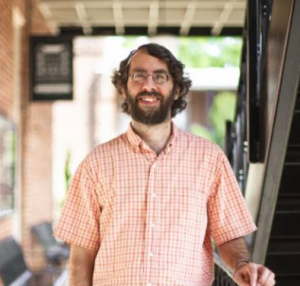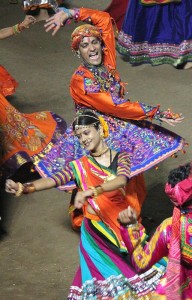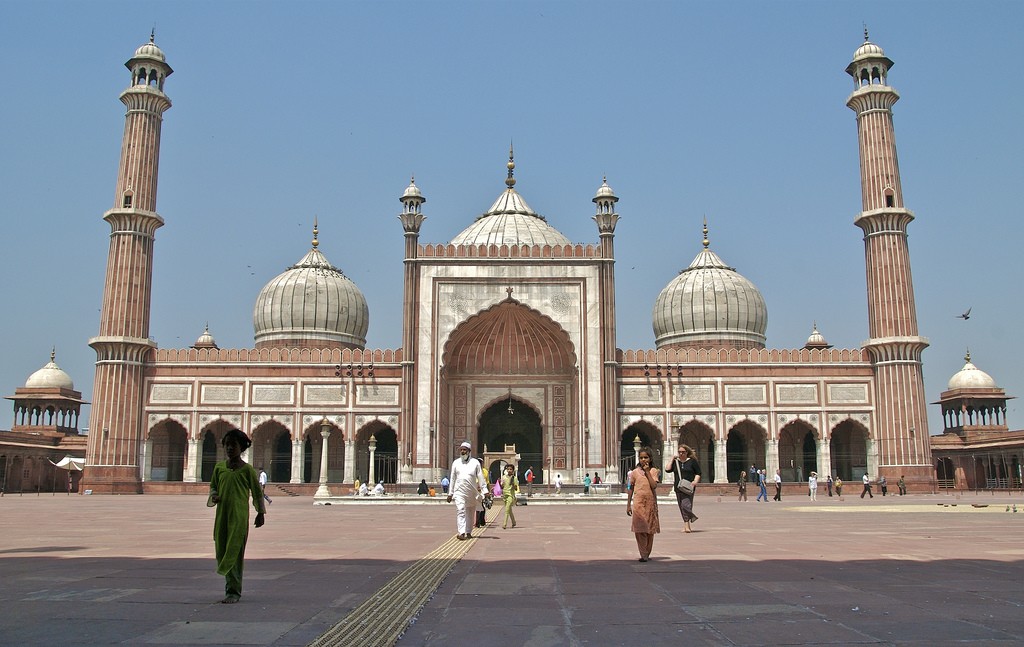“On the Spot” backs members of Culture on the Edge into a corner to talk about their backgrounds, their ongoing work, and what might be gained by an alternative understanding of how identity works.
 1) When people ask what you study, what do you tell them?
1) When people ask what you study, what do you tell them?
Typically, I respond with the straightforward “Religions of India, like Hinduism and Islam” or “Religions of Asia.” While the answer prompts some people to talk about whomever they know who is from India or has visited India, the perceived exotic nature of India, Hinduism, and Islam means that fewer people are confident to start a lengthy discourse about India, as some people do if I simply answer “religion.”
2) How do questions of identity manifest in your research?
My initial intention was to study the difference between strict religious identifications and the fluidity of practice, as many in India participate in practices that we commonly identify with competing religions. Self-identified Hindus not only celebrate festivals with their co-workers and friends who identify as Muslim, but they also often pray for healing or assistance at Sufi shrines. Similarly, self-identified Muslims have cooperated with Hindus in both ritual and non-ritual practices, even serving as sponsors and performers in particular festivals. And the same dynamics play out among people who identify as Sikh, Jain, or Christian in many parts of India. Continue reading “On the Spot with Steven Ramey”

 Constructing and maintaining a group, a community, requires significant effort, and at times that effort generates disagreements. In India, an organization announced this week that they were
Constructing and maintaining a group, a community, requires significant effort, and at times that effort generates disagreements. In India, an organization announced this week that they were  Are Muslims taking over India? Recently released data from the 2011 Census of India generated various headlines, from the alarmist assertion that the percentage of
Are Muslims taking over India? Recently released data from the 2011 Census of India generated various headlines, from the alarmist assertion that the percentage of  Recognizing the variety of calendars around the world, and thus the different occasions for marking a new year, illustrates the arbitrariness of time and our systems of marking time, which Russell McCutcheon has highlighted recently (
Recognizing the variety of calendars around the world, and thus the different occasions for marking a new year, illustrates the arbitrariness of time and our systems of marking time, which Russell McCutcheon has highlighted recently ( During the 1800’s, British colonizers identified particular conflicts as being “religious,” a description that many now describe as part of the British strategy of Divide and Rule. Scholars have noted examples of British accounts of “religious conflict between Hindus and Muslims” whose details, as the British recorded them, actually undermined such assertions, as participants whom the records identified as Hindus and Muslims participated on both sides of specific conflicts.
During the 1800’s, British colonizers identified particular conflicts as being “religious,” a description that many now describe as part of the British strategy of Divide and Rule. Scholars have noted examples of British accounts of “religious conflict between Hindus and Muslims” whose details, as the British recorded them, actually undermined such assertions, as participants whom the records identified as Hindus and Muslims participated on both sides of specific conflicts.